
22 minute read
PHD SCHOLARSHIP RECIPIENT EXAMINES COLONIZATION OF THE PRAIRIES
LITERACY, EDUCATION AND EMPLOYMENT COMMUNITY
AWAKENING TO HISTORY
PHD SCHOLARSHIP RECIPIENT EXAMINES COLONIZATION OF THE PRAIRIES
The average Canadian’s understanding of our country’s history differs wildly from person to person and generation to generation.
Karen Brglez is a PhD student studying Canadian History at the University of Manitoba and her work focuses on settler communities in Saskatchewan and how their colonization of the prairies affected Indigenous people.
“When I was in school in the ’90s, we didn’t learn about any of this,” Brglez says. “We didn’t learn about residential schools or the ’60s scoop, it was all unheard of. My understanding of Canadian history was that it was very dull.”
After majoring in History at the University of Winnipeg, Brglez changed course from her path of becoming an elementary school teacher. Instead, she is pursuing her PhD with a focus on German Lutheran settler communities in Saskatchewan and how they contributed to the colonization of the Canadian prairies in the late 19th century.
The current national conversation about truth and reconciliation and the rights of Indigenous Peoples is core to her work, and inspired Brglez to learn more.
“It’s a really interesting time to be studying Canadian history because it’s at the forefront of so many discussions right now,” Brglez says. “Historians have been talking about the history of Canada’s colonization for the past 20 to 30 years, but it’s really interesting that the general public in Canada seems to be awakening to these issues,” says Brglez.
Since 2015, she has been employed as a research assistant for German-Canadian Studies at the University of Winnipeg where she has conducted research in the fields of migration, oral, and Canadian history.
For one of her projects, she examined the roots of German-Canadian historiography by looking at the life of Gottlieb Leibbrandt, a German from Ukraine that joined the Nazi party in the 1930s. She incorporated this work into a chapter in the forthcoming Being German-Canadian: History, Memory, and Generations, set for publication this spring.
“I’m incredibly honoured to receive this Fellowship from The Winnipeg Foundation,” Brglez says. “And I am deeply appreciative of the support from The Foundation to help me further my studies in western Canadian history. I fell in love with history. This is what I want to do.”
– Karen Brglez, recipient of The Winnipeg Foundation Centennial Scholarship for Doctoral Studies in Canadian History
DR. TINA CHEN
Dr. Tina Chen is a distinguished professor of history at the University of Manitoba. She holds a PhD and MA in History from the University of Wisconsin-Madison and a BA in History and Chinese Studies from the University of Toronto. Tina is a specialist in modern Chinese history, with research interests in the social, political, and cultural norms and practices that structure people’s engagement with society. She has held visiting scholar positions at New York University, University of New South Wales, Sichuan University, and Beijing University. Passionate about collaborative learning and empowerment for social justice, she works with various organizations promoting action for anti-racism, equity, access, diversity and cross-cultural understanding in sport (figure skating), post-secondary education, and within/ amongst Asian communities. Q: You’re a distinguished professor of history at the University of
Manitoba and sit on The Winnipeg
Foundation’s board and Centennial Institute advisory committee.
What is it that draws you to the study of history, and why is it important for the future? A: I am drawn to studying history because it allows us to analyze and understand the complex operation of power and knowledge. It’s an opportunity to understand the ways in which everyday lives in the past and present are lived in relation to systemic, institutional, community, and individual belief systems. At the same time, history requires that we interrogate how we come to know and understand the past, including who, how, where, and for what purpose particular stories and materials of ‘the past’ become valued in our present. For me, understanding the work done to keep systems in place – and studying how
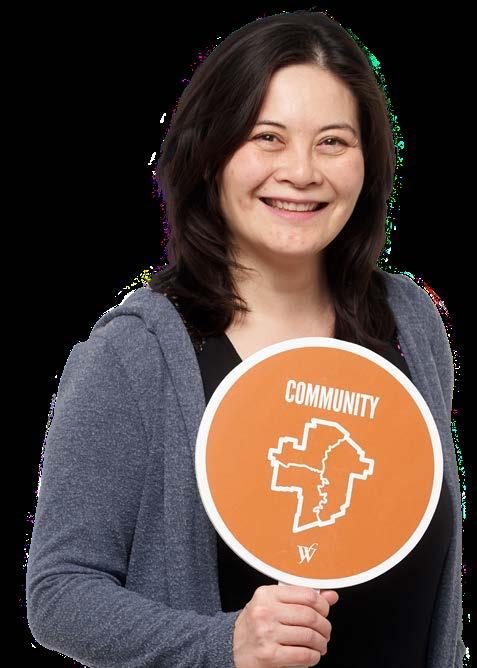
– Dr. Tina Chen, Winnipeg Foundation board member, Centennial Institute advisory committee member
power and privilege is maintained and challenged – is also a reminder that each moment and set of relations has within it the political potential to be something else. So, I guess history gives me hope. Q: You’re involved with Skate
Winnipeg as a certified Skate
Canada coach and volunteer. You’ve done interesting work looking at racism in sport – what have you found? A: I’ve been involved in figure skating since a child. It’s a sport I love, and one that I recognize is deeply implicated in exclusionary systems of oppression, including racism, sexism, able-ism, and gender normativity. In 2020, skaters began to build community for conversation, sharing stories, and activism as many challenged the myth that sport is ‘escape’ from broader social issues and is a place of opportunity, meritocracy, and belonging. I’ve been energized and inspired by those who have embraced a process of un-learning and re-learning what we know about skating, and who have made their love of the sport the basis for holding skating institutions and the skating community accountable. Q: How does your commitment to anti-racism show up in the contributions you bring to your volunteer work, including as a Winnipeg
Foundation board member? A: In the past few years, I have started to hold myself more accountable for the comfort previously found in keeping parts of my life relatively separate. This has meant trying to be more actively anti-racist in the everyday. Like so many others at the current moment, I find the words of Ibram X. Kendi a strong reminder of what this means: first “being an anti-racist requires persistent, constant self-criticism, and regular self-examination”; and second, “One endorses either the idea of a racial hierarchy as a racist or racial equality as an anti-racist. One either believes problems are rooted in groups of people as a racist, or locates the roots of problems in power and polices, as an anti-racist. One either allows racial inequities to persevere, as a racist, or confronts racial inequities as an anti-racist.”
BECAUSE WHAT YOU
becauseradio.org 24-hours
DO MATTERS BECAUSE RADIO SHARES STORIES ABOUT PEOPLE WHO CARE FOR OUR COMMUNITY
What do you care about? We care about it too! Discover the Causes people care about, and what drives them to give back, each week on The Foundation’s radio show BeCause Radio, broadcast on CJNU 93.7 FM and available at becauseradio.org. Hosted by Robert Zirk and Sonny Primolo, the show features stories about local charities, impact-makers, and Foundation activities. Have an idea for a story? Email becauseradio@wpgfdn.org

RECENT SHOW HIGHLIGHTS
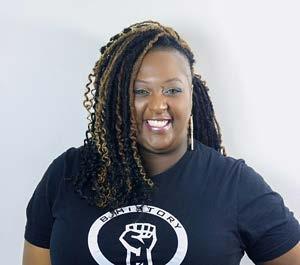
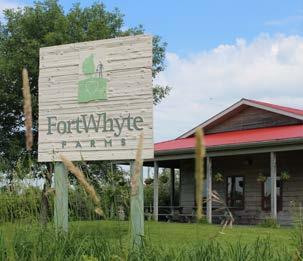
KEEPING LEARNERS CONNECTED ON THEIR EDUCATION JOURNEYS
When Stevenson-Britannia Adult Learning Centre (SBALC) had to shift its programs online due to the COVID-19 pandemic, it began working to address barriers faced by many of its learners: isolation, lack of access to technology, and difficulty in connecting through online learning platforms. “As much as [our learners] appreciated the daily emails and phone calls, what they really wanted was to see their teacher – not a YouTube video, but their actual teacher, teaching in the classroom,” says Jennifer Muir, executive director of SBALC. A grant through The Winnipeg Foundation allowed SBALC to set up live streaming for its classes. It has also resumed smaller, socially distanced in-person classes, and students can drop in or make an appointment to meet with their teachers. “Our greatest successes in this pandemic year have been staying open, staying healthy, and being able to support our learners through that.” Originally broadcast March 11, 2021 CELEBRATING AND PROMOTING MANITOBAN AND CANADIAN BLACK HISTORY
In 2021, Black History Manitoba (BHM) celebrated its 40th anniversary of honouring, recognizing and celebrating Black history in Manitoba and Canada. “We respect those who came before us, and for those who are coming up after us, we want to make sure we have a platform and steady base for them to continue what we’re doing,” says Nadia Thompson, chair of BHM. Outreach and education are key to combating racism and discrimination, and one of BHM’s goals is for Black history to be included in the school curriculum. “It’s important to help change the narrative that’s out there when we’re talking about Black history,” says Thompson. “We need to start within, and if we’re not educating ourselves, then how can we educate others?” Originally broadcast June 17, 2021 BUILDING CONNECTIONS WITH NATURE
With more than 50 years of conservation efforts and 660 acres of urban greenspace, FortWhyte Alive continues to grow with the community and nature around it. “We’ve got forests, marshes, and lakes – that’s all the hard work of a group of passionate people that wanted to see this area restored to its natural state,” says Carolyn Townend, communications and brand manager at FortWhyte Alive. Through its green spaces, programs, and events, FortWhyte Alive encourages Winnipeggers to visit and appreciate the calm and clarity of mind that nature can provide. “Our mission and philosophy remain the same: when you connect with nature, you build a central relationship with it; that, in turn, leads you to care about [nature] and take care of it.” says Townend. Originally broadcast Aug. 16, 2021
BeCAUSE & EFFECT SEASON HIGHLIGHTS
LEADERS SHARE WHAT INSPIRES THEM TO CARE IN THE FOUNDATION'S OFFICIAL PODCAST
The Winnipeg Foundation’s BeCause & Effect podcast talks with people about the Causes they care deepest about, and the effect those Causes have on their lives. Hosted by The Foundation’s Nolan Bicknell, the podcast recently finished its third season with some incredible guests who all shared inspirational thoughts and stories. New episodes come out on Tuesdays, and all previous episodes are available online at becauseandeffect.org, or anywhere you get your podcasts, including iTunes, Google Podcasts, Spotify, and more!
Learn more: becauseandeffect.org Here is a selection of guests featured on the most recent season of the podcast:
Alexis Kanu, Episode #72
Alexis Kanu is executive director of the Lake Winnipeg Foundation (LWF) and is one of many contributors to The Winnipeg Foundation’s Next 100 publication, where Winnipeggers were asked to envision Winnipeg’s next 100 years. Alexis and the LWF community make it their mission to educate, advocate, and maintain our most precious resource. “I’m trained as a scientist, so I’m trained to understand the scientific method, and to be able to understand and use data,” Kanu says. “But I really have a passion for the connections that come in the nonprofit sector. I’ve really enjoyed the work of figuring out the policy side of things, and ways in which the science and the policy can start to communicate more effectively.”
In our conversation with Alexis Kanu, we talk about the current state of Manitoba’s waterways, creating the connection between science and policy, and why we need to show respect and reverence for the water – one of our most precious resources.
Patricia Mainville, Episode #75
Patricia Mainville has been working with children, youth, and families in education and community service for more than two decades. She has been a Winnipeg Foundation board member since 2017, and also contributed a feature essay for The Winnipeg Foundation’s Next 100 publication. “Education has played a huge role in my life, coming from a family of residential school survivors, and being a part of the ’60s scoop,” Mainville says. “Being able to find out who we are, in order to know where we’re going, that’s something someone told me way back when I was a teen, when I didn’t know who I was.”
In our conversation with Pat Mainville, we talk about cultural identity and the importance of community, the education system and adapting for remote learning during COVID-19, and how her family was affected profoundly by residential schools.
Kevin Lamoureux, Episode #79
Kevin Lamoureux is a scholar, public speaker, and instructor at the University of Winnipeg, committed to supporting student success and well-being. His focus on education is rooted in the belief that through education, we can solve many of the problems that plague society. “Reconciliation is about healing Canada,” Lamoureux says. “Reconciliation is a gift that was given to us by survivors. We can’t be the nation we were meant to be, if there are people living under third-world conditions. We can’t be the Canada that we would be most proud of, when there are people living under conditions that other people would flee other countries to escape from. This is about Canada reaching its full potential.”
In our conversation with Kevin Lamoureux, we talk about structural, endemic, and systemic racism, how to navigate difficult conversations with empathy and grace, and the importance of investing in education as a solution to our biggest challenges.
ENDOW MANITOBA PROVIDES CUSTOMIZED SUSTAINABILITY AND GROWTH SUPPORT FOR COMMUNITY FOUNDATIONS
The 56 community foundations across Manitoba are committed to the betterment of their communities, right now and forever. In service to this network, Endow Manitoba works to advance the sustainability and growth of each community foundation using feedback, knowledge, and experience obtained from the community foundations themselves.
A new, customized, Sustainability and Growth Report presents each community foundation (outside Winnipeg) with comparative data on core operational practices. The report is designed to celebrate the work of each community foundation and outline opportunities for enhanced operations and increased community impact.
“Sharing a snapshot of how a community foundation’s operations align with a model of best practices, as defined by their peers, sparks internal questions and conversations that will ultimately drive intentional growth of the foundation, growth that is grounded in evidence,” says Courtney Feldman, capacity building consultant with Endow Manitoba.
Endow Manitoba used a systematic approach when developing the Sustainability and Growth Report, first consulting with community foundation leaders across the province to develop a theoretical model – or framework – outlining exemplary practices for foundations. The model is made up of five core, interrelated functions: governance, finance and administration, fund development, grantmaking, and strategic initiatives. To ensure that the model reflects the diversity of community foundations operating throughout Manitoba and to support their growth, three stages of community foundation development, across each of the five functions, were identified: emerging, developing, and accelerating.
“The stages of development are meant to guide intentional growth of a community foundation. As a community foundation moves through each stage, it builds upon its established practices and further integrates community involvement,” Feldman says.
Using this framework, Endow developed a survey that was distributed to all Manitoba community foundations in August 2020. With 100 per cent participation, the data generated (more than 5,000 data points) was used by Endow to provide performance measures and identify relevant recommendations for each community foundation in the province. The survey results showcase a thriving network that is led by more than 560 passionate community leaders. In 2019, more than 5,500 unique donors supported the community foundation network (outside Winnipeg) which resulted in grants of more than $3.3 million into communities across Manitoba.
“Endow Manitoba is grateful for the full participation of the network in this project and is committed to continued engagement and collaboration to identify the unique needs and opportunities of Manitoba’s community foundations,” Feldman says. “In addition to empowering individual community foundations, this annual project will enable Endow to identify and analyze provincial trends which will drive Endow’s strategic direction and support advocacy for greater impact by community foundations.”
What is Endow Manitoba?
Endow Manitoba represents the network of Manitoba's community foundations. Started as an initiative of The Winnipeg Foundation, Endow Manitoba works with the province’s 56 community foundations to increase their impact and advance the community foundation movement.
Courtney Feldman, capacity building consultant, Endow Manitoba
ENDOW MANITOBA STAFF WORK WITH LOCAL FOUNDATIONS TO INCREASE IMPACT
There’s an old adage in the community foundation movement: If you’ve seen one community foundation, you’ve seen one community foundation. That’s because each individual foundation serves its unique community. However, there are universal best practices that can help a foundation meet success, and an innovative new Endow Manitoba program is helping community foundations implement those practices.
Lynda Lambert is a community foundations coordinator with Endow Manitoba. Her role involves assuming a community foundations’ administrative tasks that support the organization’s growth and impact. Lambert understands firsthand how the unique flavour of each community influences universal community foundation operations; prior to joining the Endow team, she worked as parttime executive director of the Morden Area Foundation.
“We’re all doing the same thing, and yet we’re all so different,” Lambert says.
For example, some communities in Manitoba have many registered charities, while others have very few, thus requiring the foundation to develop strategic community relationships to expand their reach. Some community foundations cover relatively small areas, while others cover entire rural municipalities.
Endow Manitoba has been working hard to understand how community foundations operate, in order to provide customized sustainability and growth support. See story on facing page. Lambert’s role currently involves supporting the Morden Area Foundation, Plum Coulee Community Foundation, Morris Area Foundation, and The Steinbach Community Foundation. Other Endow staff support the Pembina Manitou Area Foundation, Miami and Area Foundation, and Carman Area Foundation. The costs of the community foundations coordinator positions are shared by both Endow Manitoba and the community foundations the staff work with.
“My position was developed as a way to help give community foundations administrative support and to help them grow,” Lambert explains.
For many community foundations, which are often volunteer-run, it can be challenging to find the time to formalize procedures and policies. The Endow Manitoba community foundations coordinators are there to support this work,
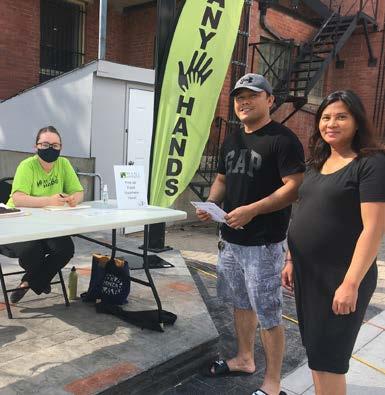
Morden Area Foundation made a grant in support of Many Hands, which provides participants with vouchers for the local farmers market where they can purchase food, clothing and other items they need. The program flowed $15,000 through the farmers market, helping local residents to access local food and products and to support local farmers in the area. Lynda Lambert, community foundations coordinator, Endow Manitoba
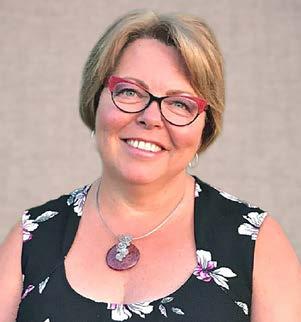
“to help streamline operations, or perhaps provide more efficient ways of doing things,” Lambert says.
“Endow Manitoba provides tremendous insight into all functions that go into running a foundation, and then it’s up to the individual foundation and their board to decide what they want to prioritize and how they will make it their own, adding in their own local flavour,” Lambert says.
For example, through the program Endow has supported the recruitment of new board members for The Steinbach Community Foundation and Plum Coulee Community Foundation.
“Everybody is just crazy energized now because there are new people. There's new excitement. Some of the people who have been there for a while, they now know they can pass the torch, and that it's going into new hands that will handle it,” Lambert says.
Supporting community foundations and their work is something that energizes Lambert.
“I just love what I do so much. I love the people that I meet. I love learning new things through the Endow Manitoba team. I love watching all these foundations grow. Although each community is unique, each foundation cares so passionately about the future of their community.”
Learn more: endowmb.org
RECOGNIZING YOUNG PHILANTHROPISTS
Divya Sharma, a student at Fort Richmond Collegiate, is a positive leader with a passion to create positive change. As the youth rep of her school’s Youth in Philanthropy committee, she helped distribute $7,500 to local charities during the 2020/21 school year. Last year, Divya received a Solidarity Award from the United Nations’ Sustainable Development Goals Actions Campaign for her positive impact on our community during a health crisis. Divya spearheaded a project to thank essential workers by creating and delivering care packages to hospitals, police stations and truck hubs across Winnipeg. On National Philanthropy Day, Nov. 15, Divya will be honoured by the Manitoba Chapter of the Association of Fundraising Professionals (AFP) as the recipient of the Outstanding Youth in Philanthropy award, sponsored by The Winnipeg Foundation.
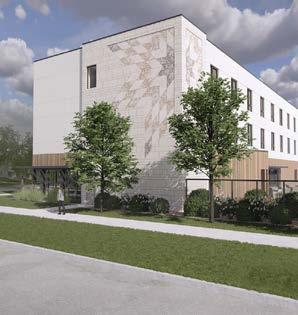
A HOME FOR EVERYONE
Earlier this year, the federal and provincial government announced a partnership with the Pollard family to provide safe, affordable housing for Winnipeggers experiencing homelessness and dealing with mental health or addiction issues. The Pollard family established Home First Winnipeg, a non-profit charitable corporation, that will develop and construct a three-storey, 47-micro-suite apartment building on Ross Avenue in Winnipeg’s Centennial neighbourhood. The apartment will have support staff on-site 24-7, a meal program, and services for those seeking recovery from addictions, but following the Housing First philosophy, residents will not be required to live a sober lifestyle, a barrier for many looking to access services and housing.
Building rendering by Prairie Architects.
COMMITTED TO INNOVATIVE RESEARCH
A grant from The Winnipeg Foundation Innovation Fund of the Rady Faculty of Health Sciences will support research into the use of thermal imaging and artificial intelligence to better understand the warning signs of rheumatoid arthritis. Findings from this project have the potential to help others studying early detection and preventative treatments of the chronic disease. In 2019, The Winnipeg Foundation committed $1 million over five years to the Innovation Fund, to advance research that will achieve results within a short period of time, allowing for cutting edge medical advances to be developed rapidly, and to create opportunities for more funding to be secured for further research.
REMEMBERING MARGARET MORSE
Margaret Morse, a community leader and fundholder at The Winnipeg Foundation, passed away on April 19, 2021. Morse was Manitoba’s first speech therapist and pioneered speech clinics in hospitals, assessing and treating adults and children with communication disorders. Her volunteerism spanned decades and many organizations, including the Winnipeg Art Gallery, Women’s Musical Club of Winnipeg, University Women’s Club, Manitoba Historical Society and as a director of the Eckhardt-Gramatte Foundation. She received the Order of Manitoba in September 2020. In 2021, she was awarded the Manitoba 150 Women Trailblazer award.
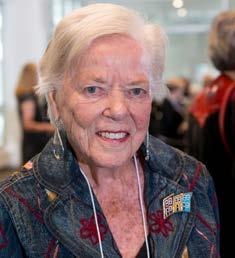
Margaret Morse at The Winnipeg Foundation’s 2016 Legacy Circle Celebration.
ACHIEVING SECTOR STANDARDS
This summer, The Winnipeg Foundation earned accreditation under Imagine Canada’s national Standards Program. The program is a Canada-wide set of shared standards for charities and non-profits designed to strengthen practices in five fundamental areas: board governance; financial accountability and transparency; fundraising; staff management; and volunteer involvement. To receive accreditation, The Foundation’s policies and procedures in the five areas of compliance were evaluated by a peer group of volunteers from the sector. With this achievement, The Foundation joins more than 200 organizations across the country dedicated to operational excellence.
GENERATIONS OF GENEROSITY
Maribette Dahl, daughter of The Winnipeg Foundation’s first Executive Director Peter Lowe, celebrates her centennial alongside The Foundation this year! Maribette’s birthday is Nov. 27, 2021. Dahl started her career as a bookkeeper at Canada Packers, now Maple Leaf Foods, following in her father’s financial footsteps. She spent much of her life as an active community member playing piano at personal care homes, helping to fundraise for the University Woman’s Club of Winnipeg, and volunteering in her church choir and with the Winnipeg Music Festival. Dahl’s daughters say she was also active in their home growing up and was known for being a great host and baker. When her father grew too old to live alone, she welcomed him into her home. After he passed, she donated William Alloway’s desk – Alloway had given it to Lowe years before – to The Foundation. The desk is housed with some of Alloway’s other personal belongings at the Manitoba Museum.
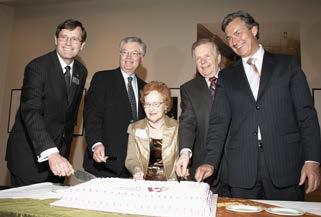
The Foundation’s 85th birthday party, 2006. Pictured left to right: Gregg Hanson, former Winnipeg Foundation board chair; Richard Frost, former Winnipeg Foundation CEO; Maribette Dahl, Winnipeg Foundation donor and daughter of Winnipeg Foundation’s first employee, Peter Lowe; The Honourable John Harvard, PC, OM, LLD 23rd Lieutenant Governor of Manitoba; Gary Doer, former Premier of Manitoba.
MANITOBA 150 TRAILBLAZERS
The Manitoba 150 Women Trailblazers honours the contributions Manitoba women have made to social justice, arts, sports, politics, and community activities. Many of the recipients have played a part in The Winnipeg Foundation’s work. Dr. June James is a past Winnipeg Foundation board member and the first Black woman admitted to the University of Manitoba’s Max Rady College of Medicine. Honourable Janice Filmon is a lifelong philanthropist, chairs The Foundation’s appointing board which appoints Foundation board members, and is the founding chair of the Nellie McClung Foundation.
Dr. June James at The Winnipeg Foundation’s 2015 Legacy Circle event.
BECOME ONE IN A MILLION
Winnipeg is known for its tree canopy, but due to invasive insects and severe storms, it is in crisis. Trees Winnipeg and the City of Winnipeg have come together for the Million Tree Challenge (MTC), a call to Winnipeggers to help plant a million new trees in Winnipeg during the next 20 years, the anticipated time it will take for our city’s population to reach one million. The Winnipeg Foundation not only provided a grant to support the challenge program, but Foundation staff stepped up to the challenge this fall, planting a total of 218 trees in the Point Douglas and Tyndall Park areas.
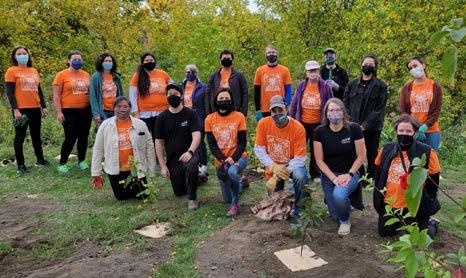
Foundation staff planting trees in Point Douglas.
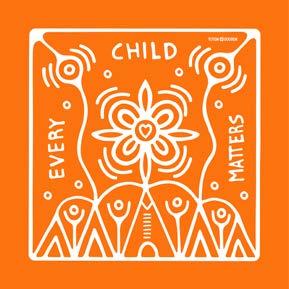
Image on The Winnipeg Foundation’s orange shirts, designed by Jordan Stranger.
TRUTH AND RECONCILIATION AND EDUCATION
This is the first year Orange Shirt Day, Sept. 30, was observed federally and in Manitoba as National Day for Truth and Reconciliation. In 2020, the National Centre for Truth and Reconciliation (NCTR) marked the day with Every Child Matters 2020, online programing for students in Grades 5 to 12 across Canada allowing them to learn firsthand from Elders, Knowledge Keepers and residential school survivors. This year, with support from The Winnipeg Foundation, NCTR expanded the event to a week-long event for students and the general public. The Truth and Reconciliation Week offered five days of online sessions and activities exploring topics like the truths of the Indigenous treaties, First Nation, Métis and Inuit land claims, and the residential school system.
THANK YOU FOR HELPING TO BUILD A WINNIPEG WHERE COMMUNITY LIFE FLOURISHES FOR ALL.











